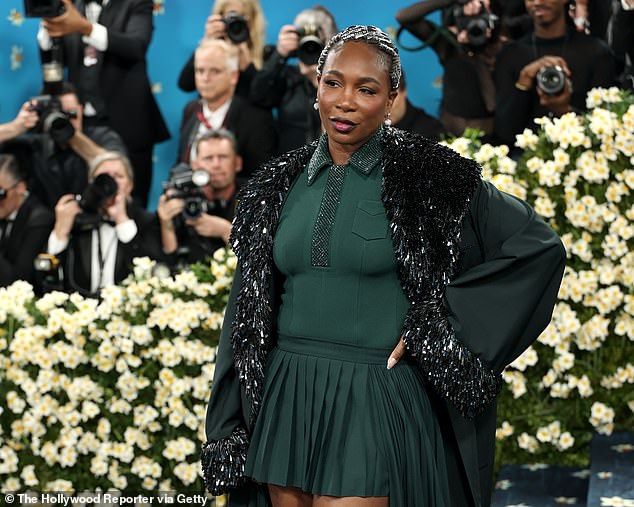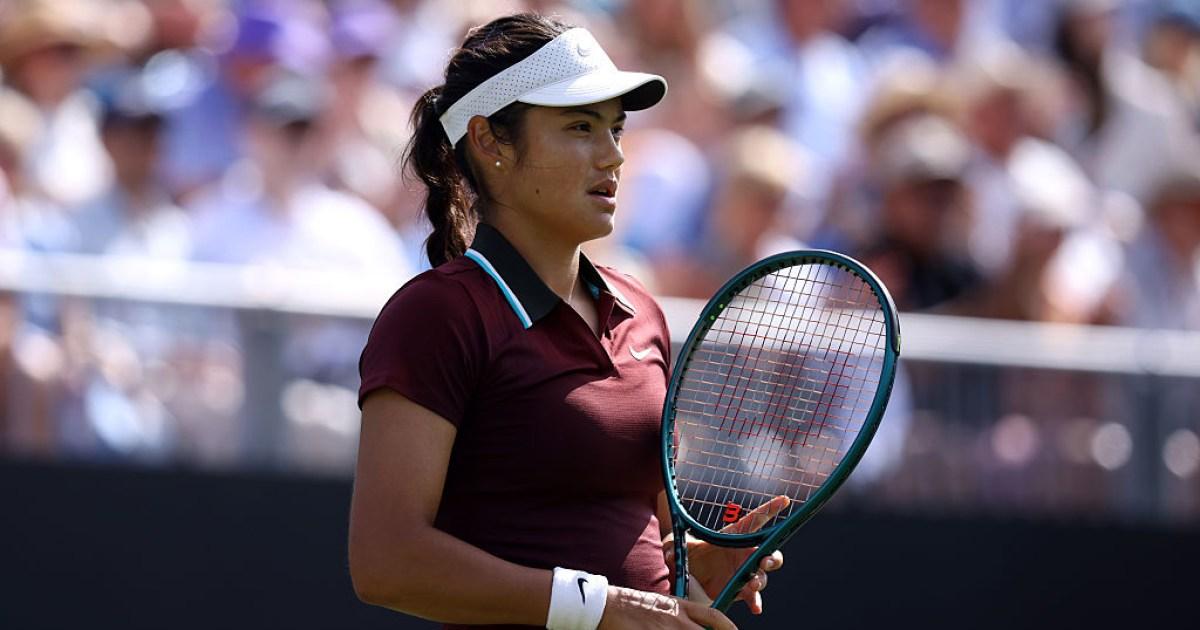Tennis icon Venus Williams has opened up on her terrifying battle with fibroids – and claimed that doctors initially misdiagnosed the problem as period symptoms.
Williams, who has won seven women’s grand slam titles, discussed her painful experience during an interview with NBC News after alleging that she was kept in the dark about the full extent of the problem despite seeking medical help during her tennis career.
After her menstrual cramps intensified, leaving her with heightened nausea, the 45-year-old says doctors dismissed her grueling period symptoms as ‘normal’ while failing to spot signs of fibroids – noncancerous growths that develop in the muscular wall of the uterus.
‘It just got too bad, and I couldn’t handle it,’ she admitted in the interview with NBC News’ Zinhle Essamuah, which aired on Thursday.
‘As bad as things were for me, crazy amounts of bleeding like you couldn’t imagine… my doctors told me it was normal,’ Williams later added. ‘I never realized (anything) was wrong.’
The American star reportedly knew she had fibroids, though doctors never identified how large they were. Medical professionals also failed to explain how they were related to the intense levels of pain, nausea and persistent anemia she was feeling from heavy periods, which led to repeated iron transfusions.

Venus Williams has opened up on her battle with fibroids and claimed she was misdiagnosed

The seven-time grand slam champion says she dealt with the problem throughout her career
As a result, she suffered behind the scenes for years while juggling the issue with her career as an elite tennis player.
‘I’m sharing now because I was outraged that I didn’t know this was possible. I didn’t know what was wrong with me,’ she insisted. ‘No one should have to go through this.’
Williams, who recently turned down the chance to make a tennis comeback after over a year out, says she experienced heavy bleeding as adolescent and throughout her career, which impacted her energy on the court.
She was often flagged as being anemic when undergoing anti-doping tests, leading her to believe she was suffering from Sjogren’s syndrome – an autoimmune condition which causes muscle pain, fatigue and trouble swallowing.
‘I thought maybe it was autoimmune anemia,’ Venus said. ‘It was what I was dealing with inside, which was fibroids and something else I had never heard of, which is adenomyosis.’
Fibroids are incredibly common in young females, affecting 70 percent of white women and 80 percent of black women before they turn 50.
Williams says she would often wear more layers because she bled so much, meaning people might not notice if it seeped through one set of clothes. And during training at Wimbledon in 2016 she became so sick she couldn’t eat.
‘We had a doubles final to play next, and I was just lying on the floor in the locker room, like, “It’s gonna pass. It’s gonna pass,”‘ she recalled. ‘Thank God Serena got the doctor… and I was able to get up and eat and start playing — bad luck for the opponents.’

Williams says doctors initially dismissed her grueling period symptoms as ‘normal’
When she turned 37, Williams says she was told by a doctor that her symptoms were ‘part of aging’ without mentioning the possibility of fibroids. Doctors are said to have monitored her fibroids with ultrasounds but never shared information about them with her.
‘I didn’t know that they were really big,’ she claimed. ‘I didn’t know that they were growing and growing and growing.’
Another doctor is even said to have joked that her symptoms were ‘natural birth control’. ‘I had no idea what that meant. No one explained it to me,’ she said. ‘Looking back, that’s not funny at all to take away someone’s opportunity to have a child or create a family if they want to. It’s not a joke.’
Eventually, Williams was advised by another doctor to undergo a myomectomy – a procedure that removes the fibroids from the uterus. After initially balking at the idea, she later came around.
‘When she came to see me, she told me, “I’ve seen a dozen other doctors. No one has recommended surgery. Why are you recommending surgery?”‘ Dr. Taraneh Shirazian recalled. ‘I said, “Well, because I know it will make you better.”‘
‘Women do not get the care that they need for fibroid disease,’ Williams continued. ‘To me, that’s the part that we should all be thinking about. World-class athlete, superstar. Has access to every doctor, every facility, every option,” she said. “She went to so many other people before she got care.’



